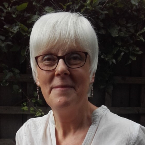Alice started nursing at 17 years old when in 1932 she completed the British Tuberculosis Certificate, at Black Notley sanatorium in Braintree, Essex.
General nursing care and strict hygiene were the excellent skills learned in this rewarding, but potentially dangerous specialty. She then undertook her general training at the Royal Sussex, registering in 1939 just as war was imminent. She recalls: ‘we had a lovely nurses’ home, we could look out over the sea, and we could walk out of the back door onto the Downs’.
Soon this peaceful setting changed.
In May 1940 she was working night duty when: ‘I remember going up the stairs and Matron was in her grey and red Territorial Army uniform … ‘nurse Bird, don’t go to bed, the men from Dunkirk are coming in’ They were in such a state it was awful… I was sent to theatre but they were doing operations on the ward, wherever they could find a space. Quite a few died and quite a few lost limbs. It’s always there, you don’t forget it.’
Alice’s family were in London, so despite the danger, she returned, undertaking midwifery training at The Middlesex. One wing was bombed and only accessible by walking across planks and each night, aided by boy scouts, all patients were carried to the basement. In the community she cycled through the darkened streets with hooded lights to try to reach women in labour.
Realising her ambition was to teach, she moved to a night sisters post at the Royal Waterloo so she could study at Battersea Polytechnic for her Tutors qualification by day. As the war finished, Alice was nearing the end of her course and looking forward to her next adventure.
To be continued...

Alice Bird’s life story can be found in the Papers of Janet Hargreaves’ Accession Number 3542


 Share on LinkedIn
Share on LinkedIn




